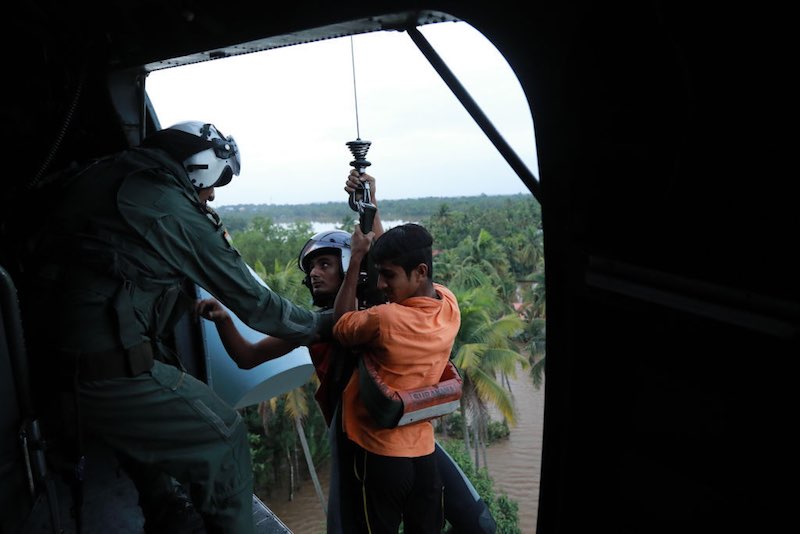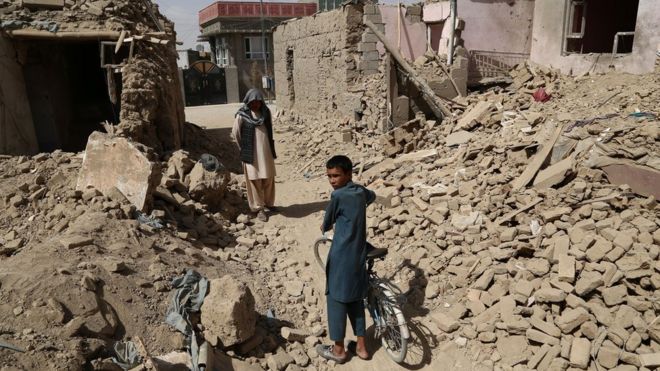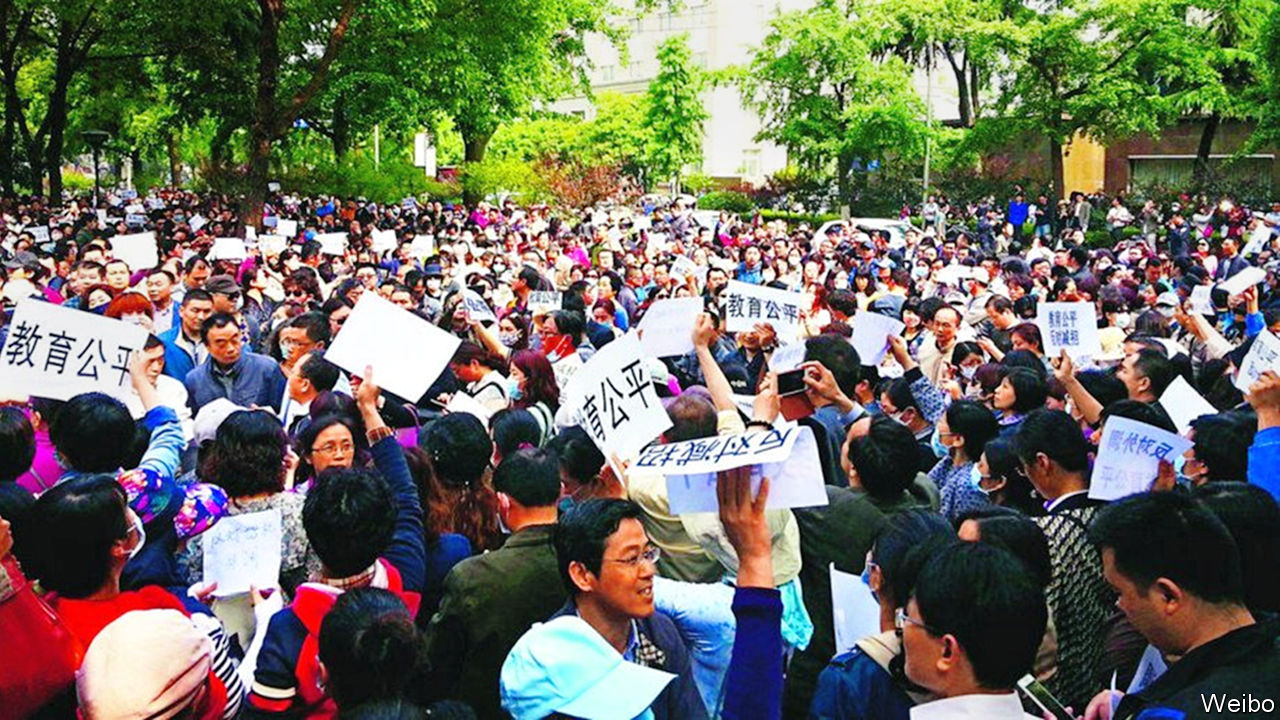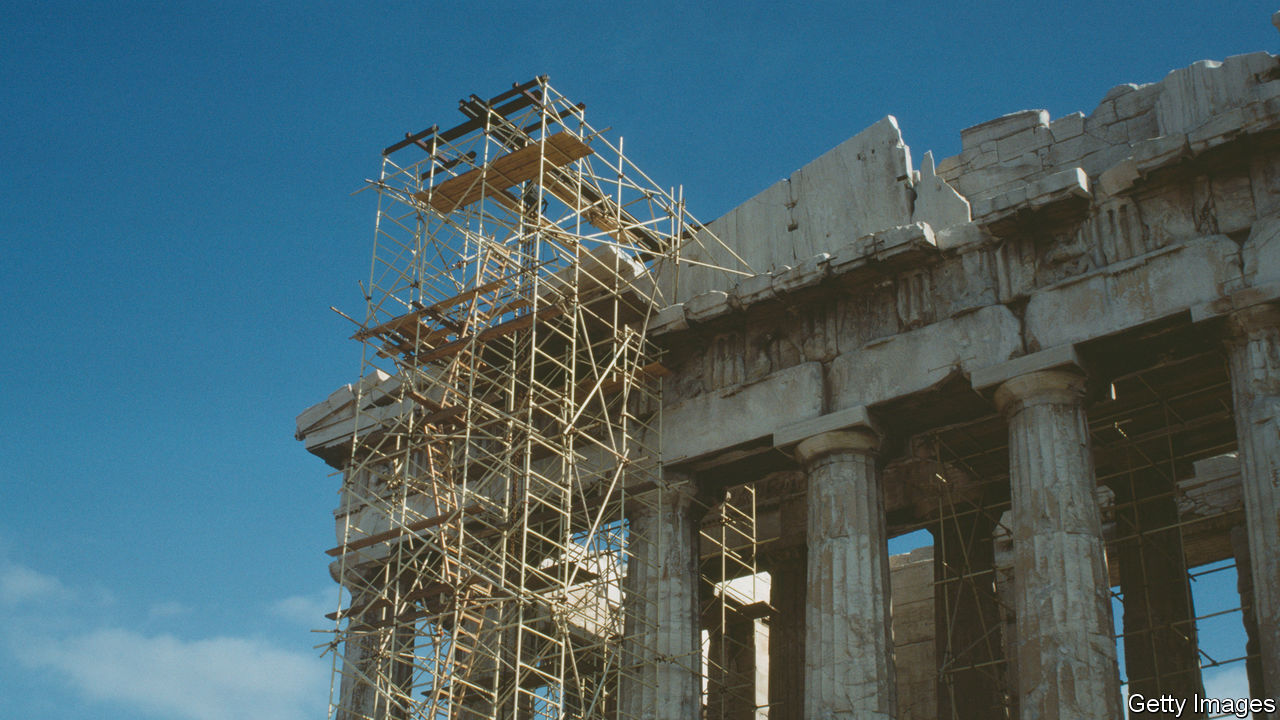 Last month, the Indian Navy conducted the largest ever disaster relief and rescue operation under its Southern Naval Command, part of an effort to rescue thousands of people affected by the devastating floods that ravaged the coastal state of Kerala. Known as Operation Madad, the navy led a multi-agency effort that rescued close to 17,000 people over 16 days, and deservedly earned many accolades for its efforts. A few days after the operation in Kerala ended, the Indian Navy ship, INS Sahyadri, sailed into Darwin, Australia. The ship and crew had arrived to participate in the multilateral exercise Kakadu, which involved maritime forces and observers from over 25 countries. Media coverage of this event was relatively muted in India. However, the fact that Sahyadri has been deployed in the South China Sea and the Pacific Ocean for over four months, making many port calls and participating in other multilateral naval exercises, underscores the Indian Navy’s intent to make its presence felt across the Indo-Pacific.
Last month, the Indian Navy conducted the largest ever disaster relief and rescue operation under its Southern Naval Command, part of an effort to rescue thousands of people affected by the devastating floods that ravaged the coastal state of Kerala. Known as Operation Madad, the navy led a multi-agency effort that rescued close to 17,000 people over 16 days, and deservedly earned many accolades for its efforts. A few days after the operation in Kerala ended, the Indian Navy ship, INS Sahyadri, sailed into Darwin, Australia. The ship and crew had arrived to participate in the multilateral exercise Kakadu, which involved maritime forces and observers from over 25 countries. Media coverage of this event was relatively muted in India. However, the fact that Sahyadri has been deployed in the South China Sea and the Pacific Ocean for over four months, making many port calls and participating in other multilateral naval exercises, underscores the Indian Navy’s intent to make its presence felt across the Indo-Pacific. 17 September 2018
India’s navy: between carriers and patrol boats
 Last month, the Indian Navy conducted the largest ever disaster relief and rescue operation under its Southern Naval Command, part of an effort to rescue thousands of people affected by the devastating floods that ravaged the coastal state of Kerala. Known as Operation Madad, the navy led a multi-agency effort that rescued close to 17,000 people over 16 days, and deservedly earned many accolades for its efforts. A few days after the operation in Kerala ended, the Indian Navy ship, INS Sahyadri, sailed into Darwin, Australia. The ship and crew had arrived to participate in the multilateral exercise Kakadu, which involved maritime forces and observers from over 25 countries. Media coverage of this event was relatively muted in India. However, the fact that Sahyadri has been deployed in the South China Sea and the Pacific Ocean for over four months, making many port calls and participating in other multilateral naval exercises, underscores the Indian Navy’s intent to make its presence felt across the Indo-Pacific.
Last month, the Indian Navy conducted the largest ever disaster relief and rescue operation under its Southern Naval Command, part of an effort to rescue thousands of people affected by the devastating floods that ravaged the coastal state of Kerala. Known as Operation Madad, the navy led a multi-agency effort that rescued close to 17,000 people over 16 days, and deservedly earned many accolades for its efforts. A few days after the operation in Kerala ended, the Indian Navy ship, INS Sahyadri, sailed into Darwin, Australia. The ship and crew had arrived to participate in the multilateral exercise Kakadu, which involved maritime forces and observers from over 25 countries. Media coverage of this event was relatively muted in India. However, the fact that Sahyadri has been deployed in the South China Sea and the Pacific Ocean for over four months, making many port calls and participating in other multilateral naval exercises, underscores the Indian Navy’s intent to make its presence felt across the Indo-Pacific. The Soldier Defends The State But Does The State Defend Him?
by Jay Bhattacharjee
 The judiciary as well as the executive, often with the support of the political leadership, have heaped onslaught on the military, which has become fair game. It has been more than two years since the Supreme Court of India ventured into a potential minefield that can vitally compromise the Republic’s defence and security structure. This refers, of course, to the judgement of the apex court in the Armed Forces Special Powers Act (AFSPA) case in July 2016 (Extra Judicial Execution Victim Families Association (EEVFAM) & Anr.Vs. Union of India & Anr. [Writ Petition (Criminal) No.129 of 2012]. After hearing the case that was filed by the families of persons who were allegedly killed in “encounters” by security forces in Manipur, a bench comprising Justices Madan B Lokur and U U Lalit had ruled that every allegation of use of excessive force by the armed forces or state police in Manipur that had caused deaths of individuals must be investigated. The apex court even took upon itself the task of monitoring the probes into the deaths of more than 1,500 persons who were victims of alleged extra-judicial encounters.
The judiciary as well as the executive, often with the support of the political leadership, have heaped onslaught on the military, which has become fair game. It has been more than two years since the Supreme Court of India ventured into a potential minefield that can vitally compromise the Republic’s defence and security structure. This refers, of course, to the judgement of the apex court in the Armed Forces Special Powers Act (AFSPA) case in July 2016 (Extra Judicial Execution Victim Families Association (EEVFAM) & Anr.Vs. Union of India & Anr. [Writ Petition (Criminal) No.129 of 2012]. After hearing the case that was filed by the families of persons who were allegedly killed in “encounters” by security forces in Manipur, a bench comprising Justices Madan B Lokur and U U Lalit had ruled that every allegation of use of excessive force by the armed forces or state police in Manipur that had caused deaths of individuals must be investigated. The apex court even took upon itself the task of monitoring the probes into the deaths of more than 1,500 persons who were victims of alleged extra-judicial encounters.Russia’s Deadly Embrace of Pakistan
By Vinay Kaura
 EXECUTIVE SUMMARY: In a far-reaching development for India’s strategic interests, Russia signed an agreement with Pakistan for naval cooperation on July 31. The agreement comes on the heels of an accord between Moscow and Islamabad in April of this year to increase cooperation in the training of armed forces personnel in the naval field and the conduct of a wide range of joint military exercises. Russia is building military, diplomatic, and economic ties with Pakistan that could upend historic alliances in the South Asian region. Ties between India and Russia date back to the Cold War, but relations between Cold War adversaries Russia and Pakistan are now being developed on the basis of a convergence of interests. With Washington suspending or curtailing military aid to Pakistan, collaboration with Moscow is going to be pivotal for Islamabad.
EXECUTIVE SUMMARY: In a far-reaching development for India’s strategic interests, Russia signed an agreement with Pakistan for naval cooperation on July 31. The agreement comes on the heels of an accord between Moscow and Islamabad in April of this year to increase cooperation in the training of armed forces personnel in the naval field and the conduct of a wide range of joint military exercises. Russia is building military, diplomatic, and economic ties with Pakistan that could upend historic alliances in the South Asian region. Ties between India and Russia date back to the Cold War, but relations between Cold War adversaries Russia and Pakistan are now being developed on the basis of a convergence of interests. With Washington suspending or curtailing military aid to Pakistan, collaboration with Moscow is going to be pivotal for Islamabad.Taliban overruns military base in Zabul
BY BILL ROGGIO
 The Taliban has released yet another video showing their fighters gathering in the open after overrunning a military base without fear of reprisal from NATO or Afghan warplanes. In many remote areas of Afghanistan, the Taliban has demonstrated that it can operate virtually unfettered. The Taliban released “Enemy Retreat from Shomolzo (Zabul)” on Sept. 10 on its official website, Voice of Jihad. It is unclear when the attack took place. In mid-August, the Taliban reportedly killed 11 policemen in Zabul after it overran two checkposts, but the video shows what appears to be a large base. “Shomolzo” is Shamulzayi district, which is contested by the Taliban, according to an assessment by FDD’s Long War Journal.
The Taliban has released yet another video showing their fighters gathering in the open after overrunning a military base without fear of reprisal from NATO or Afghan warplanes. In many remote areas of Afghanistan, the Taliban has demonstrated that it can operate virtually unfettered. The Taliban released “Enemy Retreat from Shomolzo (Zabul)” on Sept. 10 on its official website, Voice of Jihad. It is unclear when the attack took place. In mid-August, the Taliban reportedly killed 11 policemen in Zabul after it overran two checkposts, but the video shows what appears to be a large base. “Shomolzo” is Shamulzayi district, which is contested by the Taliban, according to an assessment by FDD’s Long War Journal.Why Afghanistan is more dangerous than ever
 Huge death tolls that would once have made headlines are becoming commonplace in Afghanistan, as the Taliban and other militant groups flex their muscles daily against a US-backed military struggling to cope. There remains no clear end in sight for a war that has turned into a bloody stalemate, as the BBC World Service's Dawood Azami explains.
Huge death tolls that would once have made headlines are becoming commonplace in Afghanistan, as the Taliban and other militant groups flex their muscles daily against a US-backed military struggling to cope. There remains no clear end in sight for a war that has turned into a bloody stalemate, as the BBC World Service's Dawood Azami explains.
Is the violence getting worse?
The Taliban Wants A Second Round Of Talks With The US
By PAUL SZOLDRA
The Taliban is ready for a second round of direct talks with the United States that may take place sometime this month, according to the Associated Press. Taliban officials met with Alice Wells, an American diplomat, in July. In that meeting, the Taliban asked for U.S. recognition of its political office in Qatar and an end to “restrictions against its top leaders before the start of the formal negotiations,” the AP reported.
Almost as good as a DD-214.
Talks between the two sides are preliminary, although both have expressed the hope that some negotiated settlement of the Afghan war can be reached. The top American commander in Afghanistan said in July that he was open to the idea of directly speaking with the Taliban.
The Taliban’s Fight for Hearts and Minds
In many ways, Charkh seems like a typical rural Afghan district. With little development or industry to speak of, its population of 48,000 ekes out a living mostly from farming. Poverty is common; those who can find better jobs elsewhere leave and send money back to support their families. But a closer look at Charkh reveals a divergence from what one may expect of an average Afghan district. Administrators there are widely seen as fair and honest, making them outliers in a country consistently ranked among the world’s most corrupt. Locals say there is remarkably little crime. Disputes among neighbors or families are rare, and when they arise, the district governor or judge quickly settles them. A health official regularly monitors clinics to make sure that doctors and nurses are present and that medicines are stocked. Across the district’s schools, government teachers actually show up, and student attendance is high—an anomaly in a state system where absenteeism is rife.
Farcical Elections In Maldives – Analysis
By R M Panda
Several countries including the United States, India and the European Union (EU) have raised serious doubts over the fairness of the Maldives presidential elections to be held on 23rd September. Bending the rules and abusing state resources, an autocratic President “Abdulla Yameen” is fighting to get himself ‘selected for his second term. He has been accused of series of corruption charges-he has mocked the human rights of the people of the nation, has put every possible contestant in jail or driven them to exile, muzzled the press and has controlled all administrative apparatus to silence his political opponents. The foreign media ( domestic has been terrorized and subdued) has strongly condemned this impropriety. China loves dictators and is not comfortable with true democracies! Ignoring immediate neighbours and their concerns Yameen has sought the support of China just to stay in power by any means.
EMPIRE OF DEBT China ‘colonising smaller countries by lending them massive amounts of money they can never repay in bid for world domination’
By Gerard du Cann
CHINA is "colonising" smaller countries by lending them massive amounts of money they can never repay, it's been claimed. The country is accused of leveraging massive loans it holds over small states worldwide to snatch assets and increase its military footprint. 7 Countries around the world owe huge sums to President Xi Jinping's China the best Sun stories with our daily Sun10 newsletter Developing countries from Pakistan to Djibouti, the Maldives to Fiji, all owe huge amounts to China. Already there are examples of defaulters being pressured into surrendering control of assets or allowing military bases on their land. Some are calling it "debt-trap diplomacy" or "debt colonialism" - offering enticing loans to countries unable to repay, and then demanding concessions when they default.
Sri Lanka provided a prime example last year.
China's Belt and Roller Coaster
Five years ago, President Xi Jinping unveiled the Belt and Road Initiative, a vast investment scheme cloaked in the rhetoric of cooperation that was designed to pave the way for China's transition to great power status. Instead, it has become a roller coaster that Beijing itself is struggling to control. The BRI's highs came early and have been mainly diplomatic and symbolic. Large and often unrealistic numbers touted for Chinese investment under the BRI have attracted more than 80 countries to the effort. Several countries have announced their intentions to link their development strategies with the BRI. Conflating demand for investment with approval of the BRI, Chinese officials have even claimed it is a new and improved form of globalization. The BRI's lows are more recent and deep, touching issues of security and sovereignty. Concerns are rising about unsustainable debt, unstated strategic motives, corruption, bias toward Chinese companies, and negative environmental and social impacts. Among western officials, many agnostics have become skeptics, and many skeptics have become critics. These complaints are growing even in BRI partner countries, with Malaysian Prime Minister Mahathir Mohamad raising the specter of "a new version of colonialism."
Australia’s Actions Against Chinese Firms Ignite 5G Security Debate
By Dan Strumpf and Mike Cherney
 Australia’s move last month to bar Chinese telecommunications-equipment manufacturers from the country’s 5G rollout over fears of cyberspying triggered debate over the security risks of the technology. Officials in Canberra, the Australian capital, cited national-security concerns as they ruled out bids from companies that they said could be used as agents for foreign governments—language that effectively banned Huawei Technologies Co., the world’s largest maker of telecommunications equipment, and its chief Chinese rival, ZTE Corp.ZTCOY 3.63% Canberra’s reasoning was based on the belief that 5G networks will be more vulnerable to security breaches because they will be less centralized than current networks, with more sensitive network activity occurring in a multitude of locations closer to users. Japanese authorities are studyingthe prospect of a similar ban.
Australia’s move last month to bar Chinese telecommunications-equipment manufacturers from the country’s 5G rollout over fears of cyberspying triggered debate over the security risks of the technology. Officials in Canberra, the Australian capital, cited national-security concerns as they ruled out bids from companies that they said could be used as agents for foreign governments—language that effectively banned Huawei Technologies Co., the world’s largest maker of telecommunications equipment, and its chief Chinese rival, ZTE Corp.ZTCOY 3.63% Canberra’s reasoning was based on the belief that 5G networks will be more vulnerable to security breaches because they will be less centralized than current networks, with more sensitive network activity occurring in a multitude of locations closer to users. Japanese authorities are studyingthe prospect of a similar ban.Speaking out: Uygurs in the United States break silence on China’s crackdown
Owen Churchill
 In January, after visiting her husband and their son, Ezmurat, in the United States, Jalaleddin returned to northwestern China’s Xinjiang Uygur Autonomous region and was promptly imprisoned for reasons unknown to Nizamidin. He said she had been swept up in the Chinese government’s broad crackdown on the Turkic Muslim population in the region, an operation reported to involve the mass detention and re-education of between several hundred thousand and one million Uygurs and other predominantly Muslim ethnic minorities. Xinjiang is home to at least 11 million mostly Muslim Uygurs. The Chinese government has denied the existence of any arbitrary detention policy, instead saying that citizens guilty of minor offences are being sent to vocational centres.
In January, after visiting her husband and their son, Ezmurat, in the United States, Jalaleddin returned to northwestern China’s Xinjiang Uygur Autonomous region and was promptly imprisoned for reasons unknown to Nizamidin. He said she had been swept up in the Chinese government’s broad crackdown on the Turkic Muslim population in the region, an operation reported to involve the mass detention and re-education of between several hundred thousand and one million Uygurs and other predominantly Muslim ethnic minorities. Xinjiang is home to at least 11 million mostly Muslim Uygurs. The Chinese government has denied the existence of any arbitrary detention policy, instead saying that citizens guilty of minor offences are being sent to vocational centres.Why Asia turned to China during the global financial crisis
Karishma Vaswani
 For many young people in Asia, going to the West to study and work is the stuff dreams are made of. But that dream turned into a nightmare for Declan Ee when he became an unwitting victim of the financial crisis 10 years ago. He was working for Lehman Brothers in the sub-prime mortgage division in London as a junior banker at the time, and was on a career path to success. Or so the young Singaporean thought. "I never felt safe after the global financial crisis," he tells me. "I had really bought into the whole culture of the industry at the time." Declan was one of thousands who lost their jobs during the Lehman Brothers collapse, an event which many mark as the start of the crisis. Overnight, credit dried up. Jobs disappeared. Banks lost billions of dollars.
For many young people in Asia, going to the West to study and work is the stuff dreams are made of. But that dream turned into a nightmare for Declan Ee when he became an unwitting victim of the financial crisis 10 years ago. He was working for Lehman Brothers in the sub-prime mortgage division in London as a junior banker at the time, and was on a career path to success. Or so the young Singaporean thought. "I never felt safe after the global financial crisis," he tells me. "I had really bought into the whole culture of the industry at the time." Declan was one of thousands who lost their jobs during the Lehman Brothers collapse, an event which many mark as the start of the crisis. Overnight, credit dried up. Jobs disappeared. Banks lost billions of dollars.
The developed world fell into economic disarray.
The world's most prolific writer is a Chinese algorithm
By Douglas Heaven
 Load up the homepage for e-commerce giant, Alibaba – a wholesale shopping site that’s more or less China’s answer to eBay – and you’ll find images and descriptions of anything you could wish to buy, from kitchen sinks to luxury yachts. Every item has a short headline, but most are little more than lists of keywords: hand-picked search terms to ensure this USB phone charger or that pair of flame-resistant overalls float to the top in a sea of thousands upon thousands of similar items. It sounds simple, but there’s an art to this copywriting. Yet Alibaba recently revealed that it is training an artificial intelligence to generate these item descriptions automatically – and they’re not the only ones. Over the last few decades AIs have been taught to compose music, paint pictures and write (bad) poems. Now they’re writing advertising copy, 20,000 lines of it a second.
Load up the homepage for e-commerce giant, Alibaba – a wholesale shopping site that’s more or less China’s answer to eBay – and you’ll find images and descriptions of anything you could wish to buy, from kitchen sinks to luxury yachts. Every item has a short headline, but most are little more than lists of keywords: hand-picked search terms to ensure this USB phone charger or that pair of flame-resistant overalls float to the top in a sea of thousands upon thousands of similar items. It sounds simple, but there’s an art to this copywriting. Yet Alibaba recently revealed that it is training an artificial intelligence to generate these item descriptions automatically – and they’re not the only ones. Over the last few decades AIs have been taught to compose music, paint pictures and write (bad) poems. Now they’re writing advertising copy, 20,000 lines of it a second.Anger grows in China over school crowding
 “STUDENTS should be encouraged to treasure their time in school and concentrate on seeking knowledge in an undistracted manner,” said Xi Jinping, China’s leader, on September 10th. His speech, at an education conference in Beijing marking Teachers’ Day, coincided with the end of the long summer holiday and a return to school for a quarter of a billion young Chinese. Across China, cooling temperatures have been matched by the sight of yellow school buses and crowds of backpack-toting children adding extra noise and bustle to each day’s commuter rush. Alas, once they get to school, many of them face serious distractions.
“STUDENTS should be encouraged to treasure their time in school and concentrate on seeking knowledge in an undistracted manner,” said Xi Jinping, China’s leader, on September 10th. His speech, at an education conference in Beijing marking Teachers’ Day, coincided with the end of the long summer holiday and a return to school for a quarter of a billion young Chinese. Across China, cooling temperatures have been matched by the sight of yellow school buses and crowds of backpack-toting children adding extra noise and bustle to each day’s commuter rush. Alas, once they get to school, many of them face serious distractions.Australia’s Actions Against Chinese Firms Ignite 5G Security Debate
By Dan Strumpf and Mike Cherney
 Australia’s move last month to bar Chinese telecommunications-equipment manufacturers from the country’s 5G rollout over fears of cyberspying triggered debate over the security risks of the technology. Officials in Canberra, the Australian capital, cited national-security concerns as they ruled out bids from companies that they said could be used as agents for foreign governments—language that effectively banned Huawei Technologies Co., the world’s largest maker of telecommunications equipment, and its chief Chinese rival, ZTE Corp.ZTCOY 3.63%
Australia’s move last month to bar Chinese telecommunications-equipment manufacturers from the country’s 5G rollout over fears of cyberspying triggered debate over the security risks of the technology. Officials in Canberra, the Australian capital, cited national-security concerns as they ruled out bids from companies that they said could be used as agents for foreign governments—language that effectively banned Huawei Technologies Co., the world’s largest maker of telecommunications equipment, and its chief Chinese rival, ZTE Corp.ZTCOY 3.63%Pakistan Pushes China to Realign Goals in Its Belt-and-Road Initiative
By Saeed Shah
ISLAMABAD—Pakistan’s new government is pushing China to establish factories and poverty-alleviation initiatives in Pakistan instead of solely the big infrastructure programs that so far have dominated Beijing’s high-profile overseas investment program, Pakistani officials said after talks with Chinese officials. Pakistan has been the showcase for China’s “Belt and Road Initiative” to build and finance transport and other infrastructure across the globe. The Pakistani move to broaden that effort comes as Beijing experiences...
Chinese official says China is educating, not mistreating, Muslims
Tom Miles, Stephanie Nebehay
GENEVA (Reuters) - China is not mistreating Muslims in Xinjiang province but is putting some people through training courses to avoid extremism spreading, unlike Europe, which had failed to deal with the problem, a Chinese official told reporters on Thursday. FILE PHOTO - Police keep watch outside the Id Kah Mosque before morning prayers in Kashgar, Xinjiang Uighur Autonomous Region, China, March 23, 2017. REUTERS/Thomas Peter Reports of mass detentions of ethnic Uighurs and other ethnic Muslims in China’s far western region have sparked a growing international outcry, prompting the Trump administration to consider sanctions against officials and companies linked to allegations of human rights abuses.
Google Is Handing the Future of the Internet to China
 In May, Google quietly removed “Don’t be evil” from the text of its corporate code of conduct, deleting a catchphrase that had been associated with the company since 2000. Amid startling revelations of how social media and internet platforms can enable political interference and new forms of stealthy cyberwarfare, avoiding evil in Silicon Valley has turned out to be harder than it looks. In a world where Twitter’s terrorist may be Facebook’s freedom fighter, decisions over what content to algorithmically uplift or suppress can involve agonizing questions of interpretation, intent, and cultural context.
In May, Google quietly removed “Don’t be evil” from the text of its corporate code of conduct, deleting a catchphrase that had been associated with the company since 2000. Amid startling revelations of how social media and internet platforms can enable political interference and new forms of stealthy cyberwarfare, avoiding evil in Silicon Valley has turned out to be harder than it looks. In a world where Twitter’s terrorist may be Facebook’s freedom fighter, decisions over what content to algorithmically uplift or suppress can involve agonizing questions of interpretation, intent, and cultural context.The Middle East Doesn’t Take China Seriously
BY STEVEN A. COOK
 Almost two decades ago, I went to dinner at a restaurant called Peking in the Zamalek neighborhood of Cairo to celebrate the Chinese New Year. During what I vaguely remember being a raucous dinner, the crowd at the restaurant was asked to hush because a special guest had arrived. It was China’s ambassador to Egypt, who took the floor with a young Chinese woman—his translator—who effortlessly turned Mandarin into flawless classical Arabic. My dinner companions, a mix of American grad students, Egyptians, and Egyptian-Americans, were blown away at the translator’s skills. After all, few Americans could accomplish a similar feat. We then resumed celebrating the Year of the Rabbit.
Almost two decades ago, I went to dinner at a restaurant called Peking in the Zamalek neighborhood of Cairo to celebrate the Chinese New Year. During what I vaguely remember being a raucous dinner, the crowd at the restaurant was asked to hush because a special guest had arrived. It was China’s ambassador to Egypt, who took the floor with a young Chinese woman—his translator—who effortlessly turned Mandarin into flawless classical Arabic. My dinner companions, a mix of American grad students, Egyptians, and Egyptian-Americans, were blown away at the translator’s skills. After all, few Americans could accomplish a similar feat. We then resumed celebrating the Year of the Rabbit.Air & Space Power Journal, Fall 2018,
Air & Space Power Journal, Fall 2018, v. 32, no. 3
o Character into Action: How Officers Demonstrate Strengths with Transformational Leadership
o Multidomain Observing and Orienting: ISR to Meet the Emerging Battlespace
o Preparing for Multidomain Warfare: Lessons from Space/Cyber Operations
o An Ethical Decision-Making Tool for Offensive Cyberspace Operations
o The Other Side of the COIN
o Air Advising in Afghanistan: Building an Organization in Flight
o Artificial Intelligence: Myths and Realities
DALAI LAMA SAYS EUROPE IS FOR EUROPEANS, REFUGEES SHOULD GO HOME AND REBUILD
BY DAVID BRENNAN
The Dalai Lama—oft-considered the embodiment of peace and tolerance—has suggested Europe should only be for Europeans, telling refugees to go home and rebuild their own countries. In comments made at a conference in the city of Malmo, in southern Sweden—which is home to a large immigrant population—the spiritual guru said that while Europe should offer safe haven to those in need, refugees must not stay forever. According to Agence France-Presse, the leader said Europe was “morally responsible” for helping the refugees who fled war, hunger and persecution in their homelands and are “really facing danger against their life.”
The death of democracy and birth of an unknown beast
by N.B.
 History provides uncomfortable lessons. Among them is that systems of governance are not immortal and that democracies can devolve into autocracy. As institutions decay and social norms fray, democratic processes and practices are prone to apathy, demagoguery and disintegration. One scholar ringing the loudest alarm bell—or perhaps death knell—is David Runciman. He is a professor of politics at Cambridge University and the author of “How Democracy Ends”. His replies are followed by an excerpt from the book. Get our daily newsletterUpgrade your inbox and get our Daily Dispatch and Editor's Picks.
History provides uncomfortable lessons. Among them is that systems of governance are not immortal and that democracies can devolve into autocracy. As institutions decay and social norms fray, democratic processes and practices are prone to apathy, demagoguery and disintegration. One scholar ringing the loudest alarm bell—or perhaps death knell—is David Runciman. He is a professor of politics at Cambridge University and the author of “How Democracy Ends”. His replies are followed by an excerpt from the book. Get our daily newsletterUpgrade your inbox and get our Daily Dispatch and Editor's Picks.The catastrophe if another global financial crisis strikes
by ARANCHA GONZÁLEZ
 IT IS 2020. The world economy is in a deep recession. Two years have passed since America imposed tariffs on many of its trading partners, prompting retaliation from China, Canada, the European Union and others. Negotiations to resolve differences faltered amid tensions over trade surpluses and deficits. The effects of the protectionist measures seemed modest at first, when global economic growth was still fairly strong. But costs gradually started to add up for businesses and consumers. Investments faltered. Global supply chains choked.
IT IS 2020. The world economy is in a deep recession. Two years have passed since America imposed tariffs on many of its trading partners, prompting retaliation from China, Canada, the European Union and others. Negotiations to resolve differences faltered amid tensions over trade surpluses and deficits. The effects of the protectionist measures seemed modest at first, when global economic growth was still fairly strong. But costs gradually started to add up for businesses and consumers. Investments faltered. Global supply chains choked.Russia is about to ban soldiers from posting about themselves on social media
 The Russian government has drafted legislation that would prohibit members of the armed forces from sharing on the Internet any information about themselves, their fellow soldiers, or the military itself. The bill has already been submitted to the State Duma for consideration by federal lawmakers. Russia’s Defense Ministry has long advocated similar measures, in response to information shared on social media that prompts public discussions of military actions that the authorities would prefer to keep a secret. Here are a few examples.
The Russian government has drafted legislation that would prohibit members of the armed forces from sharing on the Internet any information about themselves, their fellow soldiers, or the military itself. The bill has already been submitted to the State Duma for consideration by federal lawmakers. Russia’s Defense Ministry has long advocated similar measures, in response to information shared on social media that prompts public discussions of military actions that the authorities would prefer to keep a secret. Here are a few examples.Oil Production Is at Record Levels. So Why Are Oil Prices Heading Higher?
 The world is now pumping and consuming more oil than it ever has, with output from big producers such as the United States and Saudi Arabia at or near record levels. But oil prices are still stubbornly high, and lots of barrels from Iran and Venezuela are all but certain to disappear from the market in the weeks to come. That means the world needs to find a way to keep the economy supplied with oil or risk even higher prices right as global economic headwinds are intensifying.
The world is now pumping and consuming more oil than it ever has, with output from big producers such as the United States and Saudi Arabia at or near record levels. But oil prices are still stubbornly high, and lots of barrels from Iran and Venezuela are all but certain to disappear from the market in the weeks to come. That means the world needs to find a way to keep the economy supplied with oil or risk even higher prices right as global economic headwinds are intensifying.US trade war and sanctions are not helping oil markets, Russian energy minister says
Holly Ellyatt
Oil market focus is on current threats to the global oil supply. Forthcoming U.S. sanctions on Iran's oil sector, coming into effect in November, are seen as the biggest disruptive force. The global oil supply could also be vulnerable to other supply disruptions from Venezuela, Iraq, Nigeria and Libya. The U.S. trade war against China and sanctions regime is contributing to instability in the global oil market and putting pressure on prices, Russian Energy Minister Alexander Novak told CNBC on Wednesday. "We can see that the pricing situation today depends not just on the supply/demand balance or the general economic situation but also on the uncertainty that we observe today in the global markets: the trade wars, the sanctions that the U.S. pursue," Novak said, speaking to CNBC's Geoff Cutmore at the Eastern Economic Forum (EEF) in Vladivostok, Russia.
The Great Cryptocurrency Crash Of 2018 – OpEd
By Joseph T. Salerno*
 It looks like we have an asset bust for the record books in the making. The cryptocurrency crash now under way today surpassed the dot-com bust that occurred at the beginning of the millennium,. While the NASDAQ Composite Index suffered a decline of 78% from its peak in March 2000 to its trough in October 2002, the MVIS CryptoCompare Digital Assets 10 Index, has tumbled 80% from January of this year to today. During this period, the price of bitcoin, which represents 55% of the value of all cryptocurrencies, has plunged from around $19,300 at its January peak to $$6,300 as I write this. In the estimate of one commentator, the only “currency” in the world that is now faring worse than bitcoin is the Venezualan bolivar.
It looks like we have an asset bust for the record books in the making. The cryptocurrency crash now under way today surpassed the dot-com bust that occurred at the beginning of the millennium,. While the NASDAQ Composite Index suffered a decline of 78% from its peak in March 2000 to its trough in October 2002, the MVIS CryptoCompare Digital Assets 10 Index, has tumbled 80% from January of this year to today. During this period, the price of bitcoin, which represents 55% of the value of all cryptocurrencies, has plunged from around $19,300 at its January peak to $$6,300 as I write this. In the estimate of one commentator, the only “currency” in the world that is now faring worse than bitcoin is the Venezualan bolivar.On wealth, war and peace
BY PETER PRY
“Not to know what happened before you were born is to remain forever a child.”
— Cicero
 Russia is conducting the largest military exercise of the 21st century. VOSTOK-18 has mobilized 300,000 troops, 36,000 tanks and other vehicles, 1,000 aircraft and 80 ships to practice World War III. Russia is the most heavily armed state in the world. Russian conventional forces outnumber those of NATO in Lithuania, Latvia, Estonia, the Czech Republic, Slovakia, Hungary, Romania, Poland, Germany, Belgium, Netherlands, Luxembourg, France and the United Kingdom combined. Russia is the world’s strongest nuclear superpower, having at least twice as many nuclear weapons as the United States. Russia probably has the world’s most advanced offensive cyber-warfare capabilities, rivaled only by China. However, many Western elites and analysts belittle Russian military power because the Russian economy is weak. The U.S. and its allies, all focused on creating wealth and prosperity for their peoples, imprudently equate “real” military power with economic power, confident in the U.S. as the “Arsenal of Democracy.”
Russia is conducting the largest military exercise of the 21st century. VOSTOK-18 has mobilized 300,000 troops, 36,000 tanks and other vehicles, 1,000 aircraft and 80 ships to practice World War III. Russia is the most heavily armed state in the world. Russian conventional forces outnumber those of NATO in Lithuania, Latvia, Estonia, the Czech Republic, Slovakia, Hungary, Romania, Poland, Germany, Belgium, Netherlands, Luxembourg, France and the United Kingdom combined. Russia is the world’s strongest nuclear superpower, having at least twice as many nuclear weapons as the United States. Russia probably has the world’s most advanced offensive cyber-warfare capabilities, rivaled only by China. However, many Western elites and analysts belittle Russian military power because the Russian economy is weak. The U.S. and its allies, all focused on creating wealth and prosperity for their peoples, imprudently equate “real” military power with economic power, confident in the U.S. as the “Arsenal of Democracy.”Pioneering Female Infantry Marine Kicked Out Of The Corps For Fraternization
By JEFF SCHOGOL
 The career of one of the first female infantry Marines has come to an ignominious end after she admitted to having a romantic relationship with a Marine under her command whom she later married, Task & Purpose confirmed on Wednesday. Cpl. Remedios Cruz has been reduced in rank from sergeant and will be separated from the Marine Corps per an agreement negotiated with prosecutors that allowed her to avoid a court-martial on charges of fraternization, adultery, and accessory to larceny, the New York Times first reported on Wednesday.
The career of one of the first female infantry Marines has come to an ignominious end after she admitted to having a romantic relationship with a Marine under her command whom she later married, Task & Purpose confirmed on Wednesday. Cpl. Remedios Cruz has been reduced in rank from sergeant and will be separated from the Marine Corps per an agreement negotiated with prosecutors that allowed her to avoid a court-martial on charges of fraternization, adultery, and accessory to larceny, the New York Times first reported on Wednesday.
Subscribe to:
Comments (Atom)
